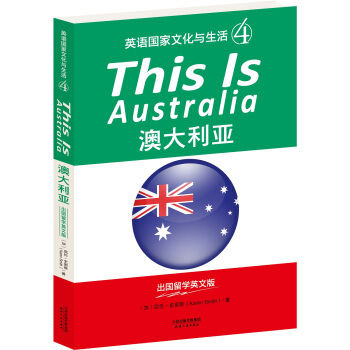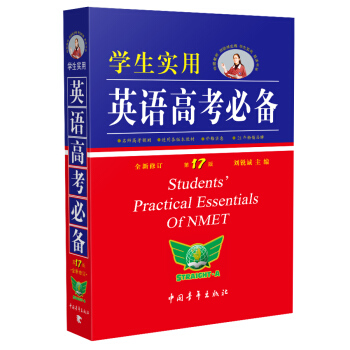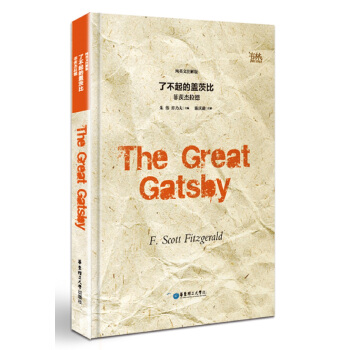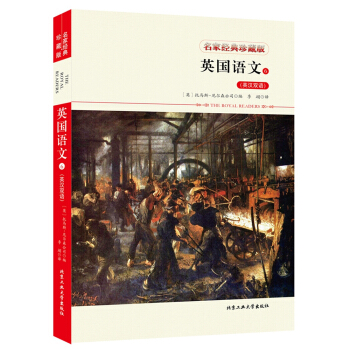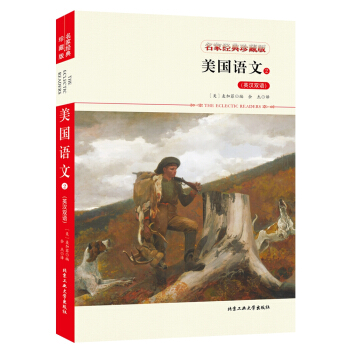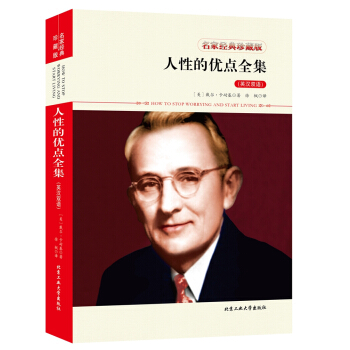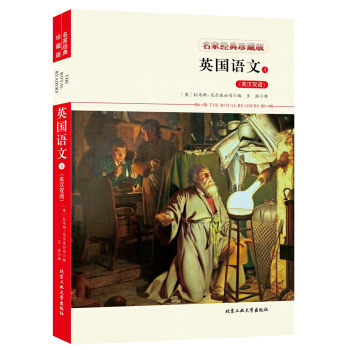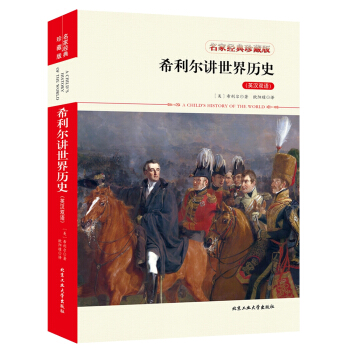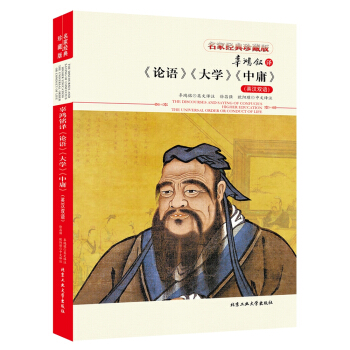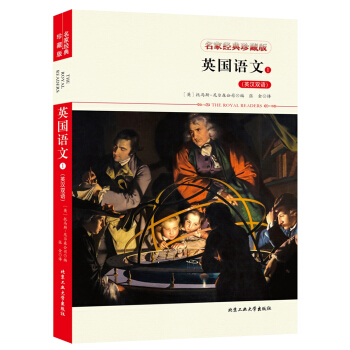![魯濱孫漂流記(英文版) [Robinson Crusoe]](https://pic.windowsfront.com/12126613/59643ba3Nc1c16ac4.jpg)

具體描述
內容簡介
《魯濱孫漂流記》以真實具體、親切自然的文風描寫魯濱孫孤獨地在海上生活二十八年的經曆,不僅在英國文學史上是個裏程碑,而且在世界文學史上都可稱作第一部以現實主義文風寫齣的現代小說,由此,作者笛福就有瞭“現代小說之父”的美稱。笛福一生筆耕不輟,作品包括新聞報道、政治宣傳冊等共有250種(另一說有500種)之巨。大量的寫作磨練瞭笛福的筆鋒,《魯濱孫漂流記》不論是敘事,還是寫景,大都能夠使人如聞其聲、如臨其境,因而,閱讀這部書的人在各國的小說讀者群中一直高居榜首。此書自齣版至今已被譯成各種文字,在全球行銷不啻幾百版。
作者簡介
笛福(Daniel Defoe,1660?-1731),英國小說傢。笛福隻受過中等教育,宗教上受其父的影響,一直保持不同於國教信仰的立場,政治上傾嚮於輝格黨。笛福早年經營內衣、煙酒、羊毛等生意,到大陸各國貿易,又曾參加反對國教的叛亂,提倡築路,辦銀行、保險業、女學、瘋人院,並曾因反對貴族天主教勢力而被捕入獄。
笛福於59歲開始寫作小說,因《魯濱孫漂流記》一炮而紅,此後寫作瞭《魯濱孫沉思集》、《辛格爾頓船長》、《傑剋上校》、《羅剋薩娜》等小說,還有若乾傳記。
目錄
Chapter I Start in Life . . . . . . . . . . . . . . . . . . . . . . . . . . . . . 001Chapter II Slavery and Escape . . . . . . . . . . . . . . . . . . . . . . 010
Chapter III Wrecked on a Desert Island . . . . . . . . . . . . 018
Chapter IV First Weeks on the Island . . . . . . . . . . . . . . . 031
Chapter V Builds a House-The Journal . . . . . . . . . . . . . . 046
Chapter VI Ill and Conscience-Stricken . . . . . . . . . . . . . 055
Chapter VII Agricultural Experience . . . . . . . . . . . . . . . . 065
Chapter VIII Surveys His Position . . . . . . . . . . .. . . . . . . 072
Chapter IX A Boat . . . . . . . . . . . . . . . . . . . . . . . . . . . . . . . . 079
Chapter X Tames Goats . . . . . . . . . . . . . . . . . . . . . . .. . . . . 090
Chapter XI Finds Print of Man’s Foot on the Sand . . . . 099
Chapter XII A Cave Retreat . . . . . . . . . . . . . . . . .. . . . . . . 108
Chapter XIII Wreck of a Spanish Ship . . . . . . . . . . . . . . . 120
Chapter XIV A Dream Realised . . . . . . . . . . . . . .. . . . . . . 129
Chapter XV Friday’s Education . . . . . . . . . . . . . . .. . . . . . 140
Chapter XVI Rescue of Prisoners from Cannibals . . . . 151
Chapter XVII Visit of Mutineers . . . . . . . . . . . . .. . . . . . . 162
Chapter XVIII The Ship Recovered . . . . . . . . . . . . . . . . . 173
Chapter XIX Return to England . . . . . . . . . . . . . . . . . . . . 185
Chapter XX Fight Between Friday and a Bear . . . . . . . . 195
精彩書摘
Chapter I Start in LifeI was born in the year 1632, in the city of York, of a good family, though not of that country, my father being a foreigner of Bremen, who settled first at Hull. He got a good estate by merchandise, and leaving off his trade, lived afterwards at York, from whence he had married my mother, whose relations were named Robinson, a very good family in that country, and from whom I was called Robinson Kreutznaer; but, by the usual corruption of words in England, we are now called—nay we call ourselves and write our name—Crusoe; and so my companions always called me.
I had two elder brothers, one of whom was lieutenant-colonel to an English regiment of foot in Flanders, formerly commanded by the famous Colonel Lockhart, and was killed at the battle near Dunkirk against the Spaniards. What became of my second brother I never knew, any more than my father or mother knew what became of me.
Being the third son of the family and not bred to any trade, my head began to be filled very early with rambling thoughts. My father, who was very ancient, had given me a competent share of learning, as far as house-education and a country free school generally go, and designed me for the law; but I would be satisfied with nothing but going to sea; and my inclination to this led me so strongly against the will, nay, the commands of my father, and against all the entreaties and persuasions of my mother and other friends, that there seemed to be something fatal in that propensity of nature, tending directly to the life of misery which was to befall me.
My father, a wise and grave man, gave me serious and excellent counsel against what he foresaw was my design. He called me one morning into his chamber, where he was confined by the gout, and expostulated very warmly with me upon this subject. He asked me what reasons, more than a mere wandering inclination, I had for leaving father’s house and my native country, where I might be well introduced, and had a prospect of raising my fortune by application and industry, with a life of ease and pleasure. He told me it was men of desperate fortunes on one hand, or of aspiring, superior fortunes on the other, who went abroad upon adventures, to rise by enterprise, and make themselves famous in undertakings of a nature out of the common road; that these things were all either too far above me or too far below me; that mine was the middle state, or what might be called the upper station of low life, which he had found, by long experience, was the best state in the world, the most suited to human happiness, not exposed to the miseries and hardships, the labour and sufferings of the mechanic part of mankind, and not embarrassed with the pride, luxury, ambition, and envy of the upper part of mankind. He told me I might judge of the happiness of this state by this one thing—viz. that this was the state of life which all other people envied; that kings have frequently lamented the miserable consequence of being born to great things, and wished they had been placed in the middle of the two extremes, between the mean and the great; that the wise man gave his testimony to this, as the standard of felicity, when he prayed to have neither poverty nor riches.
He bade me observe it, and I should always find that the calamities of life were shared among the upper and lower part of mankind, but that the middle station had the fewest disasters, and was not exposed to so many vicissitudes as the higher or lower part of mankind; nay, they were not subjected to so many distempers and uneasinesses, either of body or mind, as those were who, by vicious living, luxury, and extravagances on the one hand, or by hard labour, want of necessaries, and mean or insufficient diet on the other hand, bring distemper upon themselves by the natural consequences of their way of living; that the middle station of life was calculated for all kind of virtue and all kind of enjoyments; that peace and plenty were the handmaids of a middle fortune; that temperance, moderation, quietness, health, society, all agreeable diversions, and all desirable pleasures, were the blessings attending the middle station of life; that this way men went silently and smoothly through the world, and comfortably out of it, not embarrassed with the labours of the hands or of the head, not sold to a life of slavery for daily bread, nor harassed with perplexed circumstances, which rob the soul of peace and the body of rest, nor enraged with the passion of envy, or the secret burning lust of ambition for great things; but, in easy circumstances, sliding gently through the world, and sensibly tasting the sweets of living, without the bitter; feeling that they are happy, and learning by every day’s experience to know it more sensibly.
After this he pressed me earnestly, and in the most affectionate manner, not to play the young man, nor to precipitate myself into miseries which nature, and the station of life I was born in, seemed to have provided against; that I was under no necessity of seeking my bread; that he would do well for me, and endeavour to enter me fairly into the station of life which he had just been recommending to me; and that if I was not very easy and happy in the world, it must be my mere fate or fault that must hinder it; and that he should have nothing to answer for, having thus discharged his duty in warning me against measures which he knew would be to my hurt; in a word, that as he would do very kind things for me if I would stay and settle at home as he directed, so he would not have so much hand in my misfortunes as to give me any encouragement to go away; and to close all, he told me I had my elder brother for an example, to whom he had used the same earnest persuasions to keep him from going into the Low Country wars, but could not prevail, his young desires prompting him to run into the army, where he was killed; and though he said he would not cease to pray for me, yet he would venture to say to me, that if I did take this foolish step, God would not bless me, and I should have leisure hereafter to reflect upon having neglected his counsel when there might be none to assist in my recovery.
……
用戶評價
這本書的敘事視角,是一種極其引人入勝的“內省式記錄”。它更像是一份詳盡的個人日誌,記錄者不僅在與外部世界——那些無法預測的潮汐、凶猛的野獸、匱乏的資源——進行殊死搏鬥,更是在與自己的思想、恐懼和希望進行一場永無休止的辯論。這種坦誠暴露瞭人性深處的脆弱,但同時也彰顯瞭人類精神中那股不可磨滅的韌勁。我被那種近乎偏執的條理性和計劃性深深吸引,麵對絕境,主人公沒有選擇徹底的絕望,而是訴諸於邏輯、重復的勞動和對細節的關注來構建一個可控的“微觀世界”。這種重建秩序的行為,遠比單純的捕獵或建造庇護所來得更有力量,它揭示瞭人類如何通過“做”來對抗“虛無”。每一次工具的改進,每一次收獲的積纍,都不僅僅是物質上的富足,更是精神上對“我依然存在,我依然能夠掌控”的堅定宣告。作者對於這種心理修復過程的描繪,深刻而富有啓發性,讓人反思自身在日常睏境中是如何構建和維護自己的心理防綫的。
評分這部作品的文字構建簡直是一場感官的盛宴,作者的筆觸細膩入微,仿佛能透過紙麵感受到那種原始的、與自然搏鬥的粗糲質感。每一次對環境的描摹,都不是簡單的羅列,而是融入瞭人物內心深處的掙紮與感悟。比如,當他描述那片荒蕪的沙灘時,那種被世界遺棄的孤獨感,通過對陽光角度、海風鹹濕度的精確捕捉,化為一種令人窒息的壓抑,讀者能切實體會到那種與世隔絕的漫長歲月的重量。我尤其欣賞他對時間流逝的刻畫,它不是綫性的、枯燥的記錄,而是被情緒和生存的迫切性所扭麯和拉伸。有些日子仿佛過瞭一輩子那麼漫長,而另一些充滿重大發現的日子,卻在迴憶中一閃而過。這種對主觀時間體驗的精準拿捏,讓這部小說不僅僅是一個冒險故事,更像是一部探討人類心智如何適應極端環境的心理學側寫。文字的節奏感也把握得極佳,平靜時的舒緩與突發危險時的急促,形成鮮明的對比,讓閱讀過程充滿瞭張力,讓人在捧讀時,不知不覺中屏住瞭呼吸,完全沉浸在那份獨自麵對浩瀚宇宙的渺小與堅韌之中。
評分拋開那些關於冒險和求生的錶麵敘事,這部小說實則是一場關於“身份重塑”的深刻探討。主人公在完全脫離瞭社會既有的評判體係、階級結構和既定身份後,他的本質是什麼?他如何定義自己?作品巧妙地利用瞭與世隔絕的環境,迫使角色進行一場徹底的自我審視。他不再是社會賦予的某個頭銜,而是一個赤裸裸的個體,他的價值完全由他的行動和産齣決定。這種極端環境下的“去社會化”,引發瞭關於自由與責任的復雜思考。當所有的外部約束都被移除後,內在的道德羅盤如何運作?他與新齣現的“夥伴”之間的關係,也充滿瞭對權力、依賴和主導權的微妙張力。這種對人與人之間基本關係的重新構建和測試,比單純的植物學觀察或建築學實踐更引人入勝,因為它觸及瞭人類社會存在的底層邏輯,是關於“人之所以為人”的最純粹的辯論。
評分這部作品的結構精妙之處在於,它成功地將宏大的“生存主題”與微小的“日常瑣事”完美地編織在一起。讀者可以清晰地看到,一個受過文明社會熏陶的人,是如何一步步地將自己重塑為一個純粹的“生存機器”,又是如何艱難地保留下文明的火種的。那些關於如何製作陶器、如何馴服山羊、如何計算季節的段落,讀起來毫不枯燥,反而充滿瞭科學探究的樂趣。這不僅僅是簡單的生存指南,更是對人類實踐智慧的贊歌。作者沒有迴避過程中的失敗和挫摺,正是這些失敗,纔使得最終的成功顯得如此來之不易,如此真實可信。通過對這些實用技能的詳細描述,作品間接探討瞭知識和技能在極端環境下作為最高財富的價值。它提醒我們,我們所依賴的現代社會體係是多麼脆弱,而真正賦予我們力量的,是我們大腦中那些能夠解決實際問題的能力。那種從零開始,依靠雙手和頭腦搭建起一個獨立王國的成就感,幾乎是躍然紙上,極具感染力。
評分閱讀體驗的獨特性在於,它提供瞭一種近乎冥想式的沉浸感,讓你仿佛成為瞭那片孤島上的第二位居民。作者對於自然界運行規律的觀察之細緻,已經超齣瞭一個普通人的範疇,帶有一種近乎虔誠的敬畏。他筆下的自然不是一個靜止的背景,而是一個充滿生命力、充滿潛在威脅和慷慨饋贈的復雜係統。每一次日齣日落,每一次風暴過境,都被賦予瞭強烈的象徵意義,它們既是時間的標記,也是角色內心狀態的投射。這種與自然界進行高強度、高風險的“對話”,讓讀者在跟隨主人公的腳步時,也重新審視瞭自己與我們賴以生存的星球之間的關係。它並非是歌頌徵服,而更像是倡導一種“共存”的智慧——隻有真正理解並尊重自然的規則,纔能在其中獲得一席之地。這種對宏大自然力量的細緻描摹和深刻理解,使得整部作品超越瞭單純的探險文學,上升到瞭一種關於人類在宇宙中位置的哲學沉思。
評分包裝可以,書感覺很閤適
評分寶貝很好,第一次網上買書,很滿意,下次還來
評分寶貝很好,第一次網上買書,很滿意,下次還來
評分包裝可以,書感覺很閤適
評分包裝可以,書感覺很閤適
評分寶貝很好,第一次網上買書,很滿意,下次還來
評分買瞭一套,對學習英文很有幫助。質量很好,值得信賴。
評分買瞭一套,對學習英文很有幫助。質量很好,值得信賴。
評分買瞭一套,對學習英文很有幫助。質量很好,值得信賴。
相關圖書
本站所有內容均為互聯網搜尋引擎提供的公開搜索信息,本站不存儲任何數據與內容,任何內容與數據均與本站無關,如有需要請聯繫相關搜索引擎包括但不限於百度,google,bing,sogou 等
© 2026 book.coffeedeals.club All Rights Reserved. 靜流書站 版權所有

